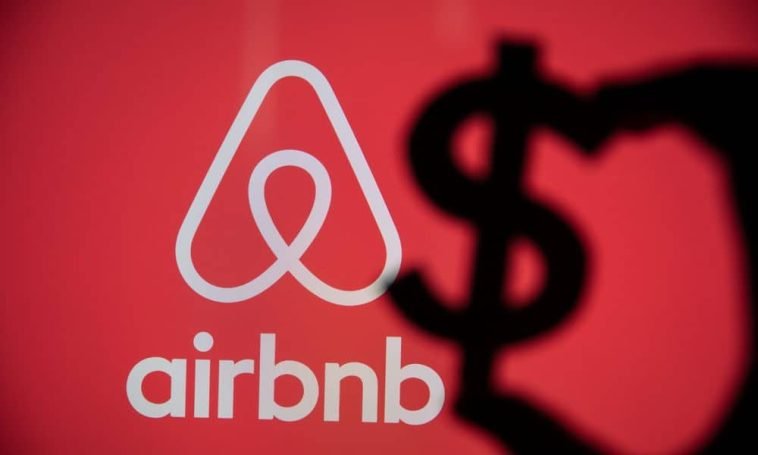Introduction.
I’ve been exploring the world of Airbnb hosting for a while now, and I know how challenging it can be to keep track of every detail—from guest bookings to expenses and income.
That’s why I want to share my experience using QuickBooks to manage Airbnb finances.
This guide will walk you through the basics, share some tips, and answer a few common questions that come up when you’re running an Airbnb business.
Why This Topic Matters
Airbnb hosting isn’t just about offering a cozy space for travelers; it’s a business that requires careful planning and efficient management of finances.
When I started, I struggled with organizing receipts, tracking income, and preparing for tax season. That’s when I discovered QuickBooks—a tool that has helped me simplify my financial life.
With over 7 million small business owners using QuickBooks (source: Intuit QuickBooks), it’s clear that having a reliable accounting tool can make a huge difference in managing cash flow, expenses, and even preparing for tax deductions.
Using QuickBooks isn’t just about keeping your books in order. It’s about freeing up time to focus on your guests and improving your hosting experience.
A well-organized financial system helps you see where your money is going, find areas to save, and make smarter decisions for your business. That’s why I’m excited to share how I use QuickBooks specifically for my Airbnb.
How Do I Use Quickbooks For Airbnb?
Getting Started with QuickBooks for Airbnb
The first step in using QuickBooks is setting up your account. If you’re new to QuickBooks, I recommend starting with QuickBooks Online because it’s designed for small business owners and offers the flexibility of accessing your data anywhere. Signing up is simple, and you can find the details on the QuickBooks website.
Once you have your account, the next step is to set up a chart of accounts tailored to your Airbnb business.
This chart helps you track income from bookings, cleaning fees, extra services, and expenses like maintenance, supplies, and even marketing costs.
I found that having clear categories makes it easier to see how much profit I’m making and where I might be overspending.
Tracking Income and Expenses
One of the biggest benefits of using QuickBooks is the ability to track every dollar that comes in and goes out.
I connect my Airbnb booking platform with QuickBooks, which automatically imports transactions.
This means I don’t have to manually enter each booking or expense, saving me time and reducing the chance of errors.
Here’s how I keep things organized:
- Income: I record all revenue streams from bookings, cleaning fees, and any extra services. QuickBooks allows me to break these down by source so I can see which areas are most profitable.
- Expenses: I enter expenses as they occur, categorizing them into groups like repairs, utilities, or supplies. This not only helps in monitoring my cash flow but also makes it easier to prepare for tax season.
Accurate record-keeping is crucial for any business, and QuickBooks helps ensure that nothing slips through the cracks. When tax time comes, having a clear record of your income and expenses can save you a lot of stress—and money.
Managing Tax Deductions and Reporting
Taxes can be one of the most stressful parts of running an Airbnb business. QuickBooks helps me by organizing all my expenses into tax-deductible categories.
This means I can easily generate reports that show my deductions, making it much easier to file accurate tax returns.
For instance, if you invest in new furniture or update your property, those expenses can often be deducted.
By keeping detailed records in QuickBooks, I can quickly identify these costs and ensure I’m taking full advantage of any deductions available. The software even offers tools that let you prepare for quarterly tax payments, which is a lifesaver for many hosts.
Tips and Tricks for Using QuickBooks Effectively
Over time, I’ve picked up a few tips that might help you get the most out of QuickBooks for your Airbnb business:
Automate What You Can
Automation saves time and reduces errors. Set up recurring invoices and automatic bank feeds to keep your records current.
Customize Your Reports
QuickBooks allows you to generate various financial reports. Customize these reports to focus on metrics that matter most to your Airbnb business, like occupancy rates and cost per booking.
Integrate with Other Tools
Consider linking QuickBooks with other software you use, such as property management systems or booking platforms. This integration streamlines data entry and ensures consistency across your records.
Regular Reviews
I set aside time each month to review my finances. This regular check-in helps me spot any discrepancies early and adjust my budget if necessary.
Stay Updated
Both QuickBooks and Airbnb often update their features. Keeping up with these changes ensures that I’m always using the latest tools available to manage my business efficiently.
Frequently Asked Questions (FAQs)
Is QuickBooks only for large businesses?
Not at all. QuickBooks is designed for businesses of all sizes. Many small business owners, including Airbnb hosts, use it because of its user-friendly interface and powerful features.
Can I integrate QuickBooks with my Airbnb booking platform?
Yes, many booking platforms offer integrations with QuickBooks. This feature allows your transactions to be automatically recorded, saving you time and reducing errors.
Check with your booking platform’s support page or visit the QuickBooks App Store for more details.
What if I’m not tech-savvy?
QuickBooks is built with small business owners in mind, even if you’re not a tech expert. There are plenty of tutorials, webinars, and support articles available on the QuickBooks Resource Center that can help you learn at your own pace.
How often should I update my records?
I recommend updating your records regularly—ideally, daily or weekly. This habit ensures that you always have an accurate picture of your business’s financial health, which can be especially helpful during busy booking seasons.
Can QuickBooks help me with tax filings?
Yes, QuickBooks simplifies tax preparation by organizing your expenses and income into clear categories.
Many hosts find that generating detailed reports from QuickBooks makes the tax filing process much smoother.
Additional Resources
To help you along your journey, here are a few resources that I’ve found useful:
- QuickBooks Online Tutorials: The QuickBooks Tutorials page offers step-by-step guides on setting up and using QuickBooks.
- Airbnb Host Community: Join the Airbnb Community Center to connect with other hosts, share tips, and get advice on managing your property.
- Small Business Financial Tips: Websites like Investopedia provide articles and tips on managing small business finances that can complement your use of QuickBooks.
- Tax Resources: The IRS website is a great place to get the latest information on tax deductions and filing guidelines relevant to Airbnb hosts.
Final Thoughts
Using QuickBooks for your Airbnb business has made my life a lot easier by taking the stress out of financial management.
The time I used to spend manually entering transactions is now spent on improving guest experiences and growing my business.
With clear records, automated reports, and seamless integration with other tools, QuickBooks has become an essential part of how I run my Airbnb.
I hope this guide helps you understand the benefits of using QuickBooks and gives you some practical tips to get started. It’s all about finding ways to work smarter, not harder.
Every host’s journey is unique, so I encourage you to experiment with different features in QuickBooks to see what works best for your situation.
Before I wrap up, I’d love to know your thoughts: How do you plan to use QuickBooks for your Airbnb business?





GIPHY App Key not set. Please check settings